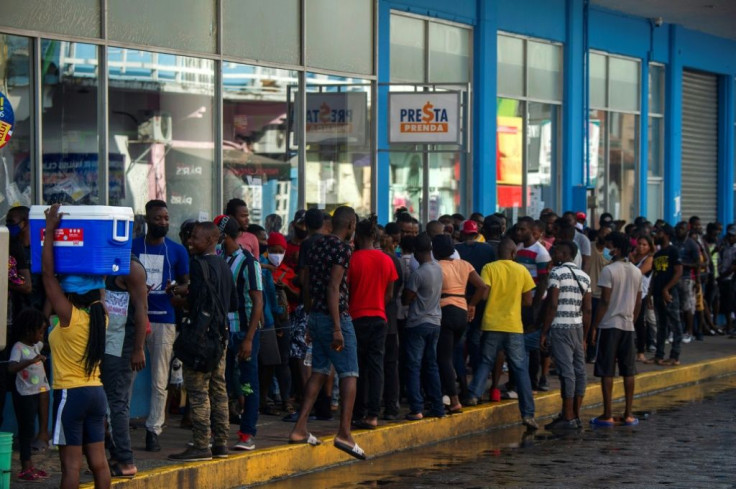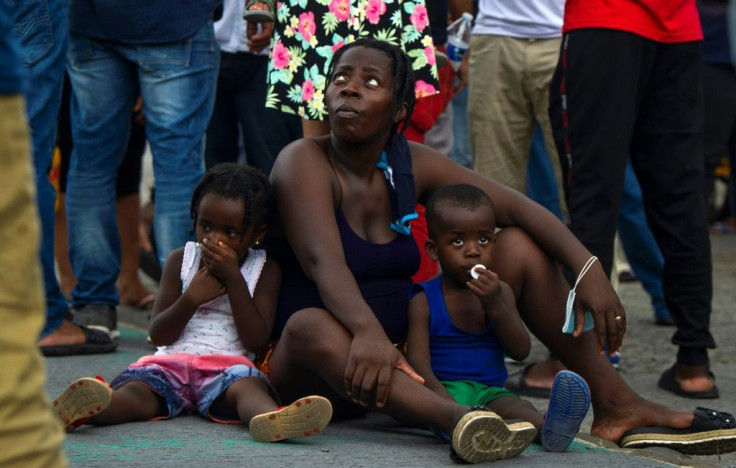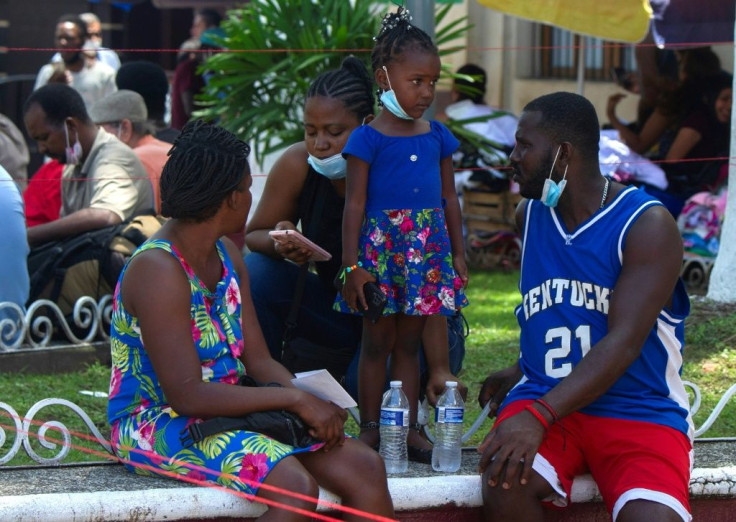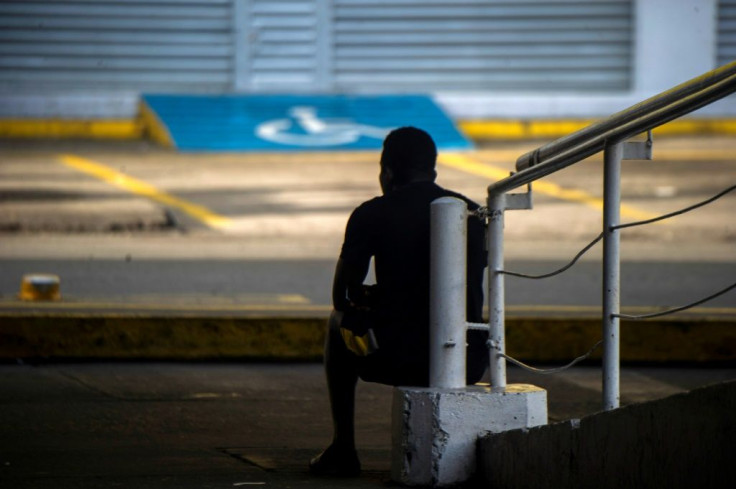Mexican City Becomes 'Prison' For Thousands Of Migrants
Tens of thousands of US-bound migrants stranded in an overcrowded city in southern Mexico are desperate to escape what they say feels like a huge open-air prison.
"It's horrible here. You're trapped with no way out," said Fanfant Filmonor, a Haitian who arrived in Tapachula two weeks ago from Brazil, where he spent three years until losing his job.
The migrants need permits so they can avoid being deported and continue their journey, but some have been waiting for months and despair is growing.
Mexican authorities have arrested more than 147,000 undocumented migrants already this year -- three times more than in the same period of 2020, according to the National Migration Institute.

Migrants keep pouring over the border from Guatemala, particularly since US President Joe Biden took office with a promise of a more humane approach to immigration.
But many reach a dead end in Tapachula, which rights activist Luis Garcia of the Center for Human Dignification called "the largest immigration prison in the Americas."

Filmonor has already traveled through 10 countries to reach Mexico and he is not ready to give up yet.
"I can't stay here. I don't have a job or documents. They won't accept me here. No one will be able to stop me," the 30-year-old told AFP.
He has a bus ticket to the northern city of Monterrey and plans to try to cross the border -- if he is not arrested along the way.
The police and military monitor the entrances and exits of Tapachula, located in the state of Chiapas, making it almost impossible for the undocumented foreigners to leave.

Migrants crowd the city's main square, the money transfer offices where they collect funds sent by relatives, sidewalks or wherever they can find respite from the suffocating heat.
Domingue Paul, a 40-year-old Haitian who arrived a month ago from Chile where he lived for five years, said he hoped to join a sister living in the United States.
"But if I find a job, I'll stay here," he said.
After a catastrophic earthquake killed around 200,000 people in their country in 2010, many Haitians were welcomed by South American nations.

However, finding work and renewing their residence permits became difficult for those migrants who are now chasing the American dream instead.
Paul, his partner and two small children are surviving on money sent by his sister while he struggles to get an appointment with the Mexican Commission for Refugee Assistance.
The organization is overwhelmed by a deluge of requests for documents.
So far this year it has arranged about 77,559 permits for migrants, compared with 70,400 for all of 2019.
Without the documents, migrants cannot work, leaving them with no choice but to live on the streets of Tapachula or crammed into cheap hotel rooms and shared apartments.
They gather in doorways, around food stalls and street stands, some with babies in their arms.
Around 40,000 migrants stuck in the city of 350,000 face overcrowding, inadequate healthcare and the risk of coronavirus infection, medical aid group Doctors Without Borders (MSF) said last week.
Some people in Chiapas, Mexico's poorest state, have stopped treating the arrivals with empathy and now view them with weariness and suspicion.
"It has affected us in many ways, both economically and in terms of health, crime, drug addiction, armed robberies, murders," said Carmen Mijangos, who owns a food outlet.
The Mexican government, under pressure from the United States to stem flows of migrants, says that it will maintain its policy of containing them in the south despite criticism.
Security forces have recently broken up several migrant caravans attempting the journey from Tapachula to the United States, and two immigration agents were suspended for mistreating a Haitian.
Rights activists are seeking a court order that would allow 7,000 migrants to leave the south.
"It's not fair on Tapachula either to impose an entire humanitarian crisis on a single city," said Irineo Mujica of migrant rights group Pueblos Sin Fronteras (People Without Borders).
After the recent crackdown, many migrants fear they will be beaten, detained and deported to Guatemala if they go back on the road.
"It's not that I don't want to go -- I don't want to be here anymore," said 28-year-old Norma Villanueva from Honduras who arrived two months ago with her husband and four children.
© Copyright AFP {{Year}}. All rights reserved.





















